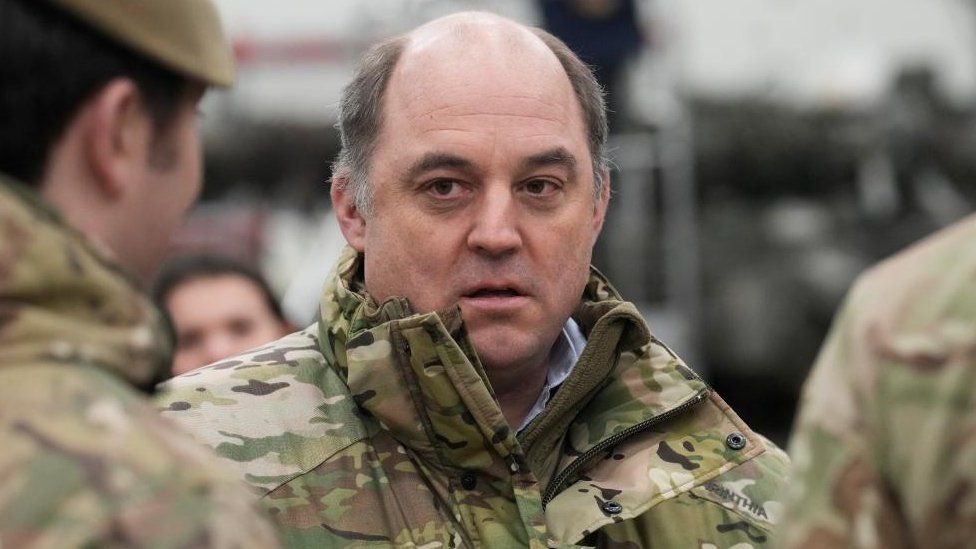ARTICLE AD BOX
 Image source, Reuters
Image source, Reuters
Several Nato members, including the US, are thought to be lobbying for current chief Jens Stoltenberg to stay on
By Jonathan Beale, defence correspondent & Malu Cursino
BBC News
Defence Secretary Ben Wallace has said he is out of the race to become the next Nato chief.
Asked about leading the alliance from autumn onwards, when Jens Stoltenberg's term ends, Mr Wallace told the Economist: "It's not going to happen."
Several Nato members, including the US, are thought to have been lobbying Mr Stoltenberg to stay on.
But on Tuesday, US Secretary of State Antony Blinken said his country was not "promoting any particular candidate".
Nato - the West's defensive military alliance - has 31 members who agree to help one another if they come under attack.
Speaking to German media about the top job last month, Mr Wallace said: "I've always said it would be a good job. That's a job I'd like. But I'm also loving the job I do now."
Despite his obvious enthusiasm to succeed Mr Stoltenberg as the next head of Nato, he appears to have failed to get the backing of key allies.
US President Joe Biden described Mr Wallace as "very qualified" for the job when he met Prime Minister Rishi Sunak in Washington recently.
But in private, the US is believed to be one of the nations trying to persuade Mr Stoltenberg to stay - at least for another year. This was echoed by Mr Wallace in comments to The Economist.
The war in Ukraine has re-focused diplomatic attention on Nato's role in the 21st century and whether it can deter Russian aggression.
Mr Wallace proved popular with a number of countries on the alliance's eastern flank because of his leadership in supplying weapons to Ukraine.
But others have argued for continuity in a time of war, or that the job should be reserved for a former head of government.
Mr Stoltenberg, who has been the alliance's top boss for nine years, has neither confirmed or denied his intentions to continue in the job.
He told reporters last week: "I am responsible for all decisions that this alliance has to take except for one. And that is about my future. That is for the 31 allies to decide."
Another contender for the role is Danish Prime Minister Mette Frederiksen, who - if elected - would be the first female Nato chief.
In his interview with the Economist, Mr Wallace said whoever takes on the role would need to deal with "a lot of unresolved issues in Nato," including differing demands from US and French leadership.
France believes Nato's secretary general should come from within the European Union.
With less than a month to go until the Nato summit in Lithuania, it looks increasingly likely that Mr Stoltenberg will be asked to extend his tenure again.
Nato was formed in 1949 by 12 countries and its original goal was to challenge Soviet expansion in Europe after World War Two.
More recently, Russia has used the expansion of Nato as a pretext for its full-scale invasion of Ukraine. Kyiv is not a member, but has received support from alliance members.
On Wednesday, Ukrainian President Volodymyr Zelensky said he was disappointed his country had not been invited to join Nato at next month's summit in Vilnius, adding that Ukraine would be the strongest member of Nato's eastern flank.

 1 year ago
34
1 year ago
34








 English (US) ·
English (US) ·